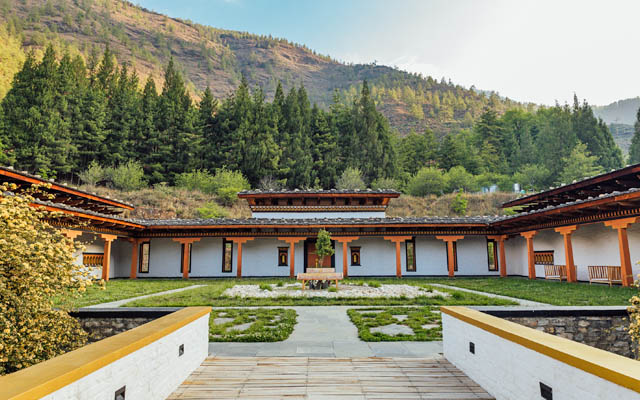As hotel companies amp up their portfolio ambitions, the spotlight has fallen on a crucial business resource: people. Karen Yue finds out what human resource chiefs are doing to provide the right talents – and leaders – to support new and future projects
There is no rest for hotel companies, as new signings, opening announcements, and asset enhancement projects are rolled out in quick succession.
According to industry analyst Lodging Econometrics, more than 15,000 hotels were in various stages of development worldwide at the end of 2024.

Its 1Q2015 Hotel Construction Pipeline Trend Report further shared that Asia-Pacific excluding China (APEC) had 2,074 projects in the pipeline. These projects will inject an additional 408,213 rooms into the region’s room inventory.
The region also recorded 124 new project announcements with 20,181 rooms at the close of 1Q2025, while combined renovations and brand conversions stand at 211 projects with 43,230 rooms.
Along with these soon-to-come projects are new openings. Lodging Econometrics analysts noted 65 new openings with 11,151 rooms in 1Q2025; 296 hotels with 58,972 rooms are forecasted to follow throughout the rest of this year.
As more projects are completed by the end of 2026, APEC can expect to welcome an additional 311 new hotels and 63,544 rooms.
In China alone, there are 2,752 projects with 490,897 rooms under construction; 316 projects with 55,287 rooms scheduled to start construction anytime within the next 12 months; and 636 projects with 124,001 rooms in the early planning stage at the close of 1Q2025.
Lodging Econometrics analysts expects 1,153 new hotels with 173,704 rooms to join China’s hotel lodging supply by the end of this year, and another 765 new hotels with 133,332 rooms by end-2026.
In a people business like hospitality, these hefty developments require a massive pool of talents ready to be deployed across all functions and ranks, acknowledged human resource chiefs.
“Hilton has a huge appetite for talent, and it keeps me awake,” said Patsy Ng, Hilton’s senior vice president, human resources – Asia-Pacific. The company opened 221 hotels with 26,100 rooms in 2Q2025. It also added 36,200 rooms to the development pipeline in the same period, bringing its development pipeline to a record 510,600 rooms as of June 30, 2025.
“We have more than 1,100 trading hotels across Asia Pacific – managed and franchised, as well as close to 1,000 pipeline hotels – managed and franchised – based on signed deals. More than 700 of these pipeline hotels will happen in the next five years. You can imagine Hilton’s need for new talents,” Ng elaborated.
She estimated that Hilton could make at least 30,000 new hires across all levels in its hotels for the next five years, including more than 2,200 hotel leadership roles.
The same hunger for talent exists in Ascott, which has more than 300 new properties opening by 2028, as well as Minor Hotels, which will open 300 new hotels over the next three years.
According to Wong Kar Ling, chief strategy officer and managing director, Southeast Asia at Ascott, the new openings will create more than 12,000 new jobs, including over 1,500 property leadership roles.
Hiring habits
Human resource teams are challenged to not only put enough hands on deck, but also identify the right people for the property, brand, and role.
Craig Cochrane, chief people officer for Minor Hotels, said: “Our business is delivered through people. This places very high demands on how we communicate our company culture and make sure that the new people we bring on board understand the type of company we are and how they can contribute.”
Hilton believes that the quality of the hiring process can influence its ability to attract the right people.
“Modernising the entire recruitment process will deliver a top-notch candidate experience as a solution to the increasingly steep competition for talents,” stated Ng.
Hilton relies on technology to streamline intensive hiring processes. It deploys Hirevue, which allows job applicants to book their interview slots and record a pre-screening presentation on their smartphones. Tools such as Traitify helps to speed up same-day hire for high-volume jobs.
Hilton’s “multi-million-dollar investments” in new recruitment technology will yield a new AI recruitment system for all its hotels in China by the end of this year and the rest of Asia-Pacific in 2026.
It has also improved on its recruitment marketing, with the use of different social media platforms and different messaging to reach a varied audience for its various brands and roles.
Training season
The need for more leaders to helm new projects has amplified the importance of people development.
Ascott launched on July 1 the Ascott Accelerate talent programme to catapult high-potential associates into leadership roles across new properties set to open in the coming years. It features three progressive career development tracks: Aim, which builds foundational leadership skills essential for supervisors; Advance, which focuses on management capabilities for heads of departments; and Aspire, which grooms future residence managers and general managers.
Aspire is the first track to launch under the programme, with courses offered to around 30 associates selected from across South-east Asia, where Ascott is set to see its fastest portfolio growth.
Aim will launch next year with potentially 30 to 40 participants, shared Wong, who is also co-chair of the Ascott Learning Council.
Minor Hotels conducts Horizon, its general manager preparation programme that is aimed at existing general managers and department heads capable of moving into their first general manager role.
Cochrane told TTG Asia: “The general manager has great influence on how the hotel is brand- and culture-compliant. The general manager has the ability to embrace company initiatives or put up walls around his property while telling everyone to let him do things his way.
“The general manager is the conduit for communications between the company and the property. This is why we have to focus so much on grooming this position.”
Horizon is a long-term training module that combines face-to-face sessions, online sessions, mentoring, and various different exposures. At the end of it, participants will understand their responsibilities in a variety of areas.
Minor Hotels also grooms future leaders with its Ascent graduate development programme, which “builds the foundation for a hospitality career by allowing young talents to experience different parts of the business”.
Hilton offers two core leadership development programmes – Lead and Shine – to nurture hotel leaders of tomorrow.
Lead is a three-tier programme curated in partnership with Harvard and tailored to develop team members at different career stages. Shine is built for top-performing talents with the potential to step into leadership roles. Both are hybrid, with online learning resources that participants can follow through at their own pace, as well as virtual and in-person group sessions that facilitate the exchange of ideas and knowledge.
Ng said these leadership development programmes have definite outcomes – 60 per cent of Shine graduates last year have been promoted to hotel directors or general manager roles. The rest are still undergoing courses or waiting for the right position to open.
Training does not end at the top. As an ancient Chinese saying goes, one should keep learning for as long as one lives. At Hilton, general managers are supported by Hilton’s GM Academy, which instills the habit of continuous learning through online courses and presentations by external speakers, owners and other senior leaders.











